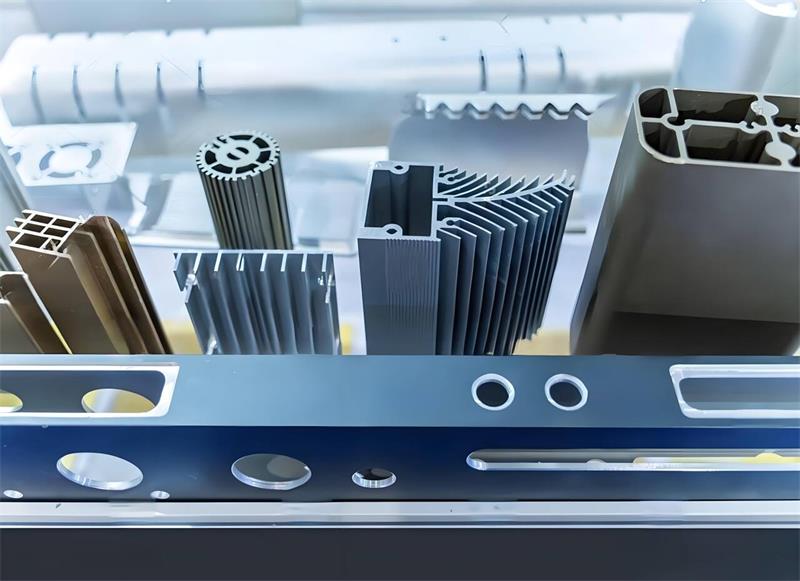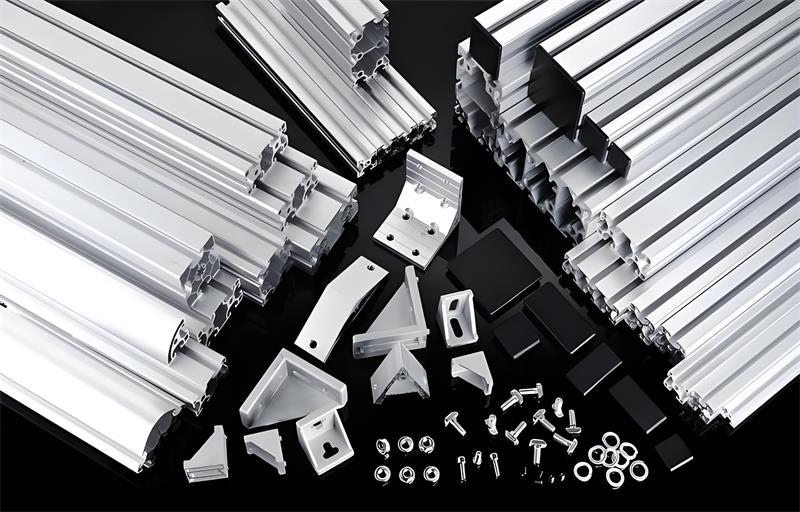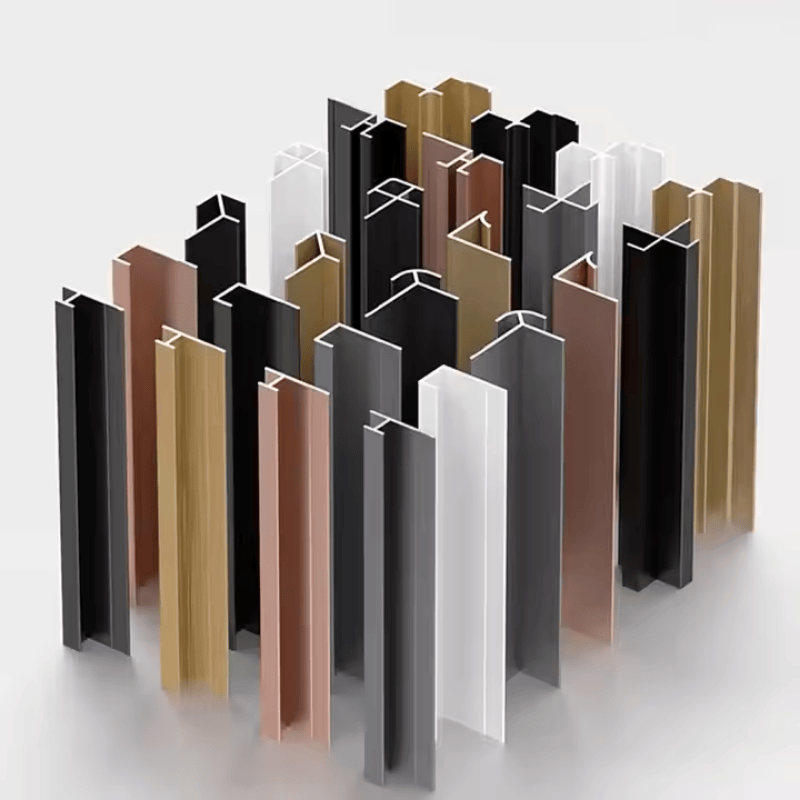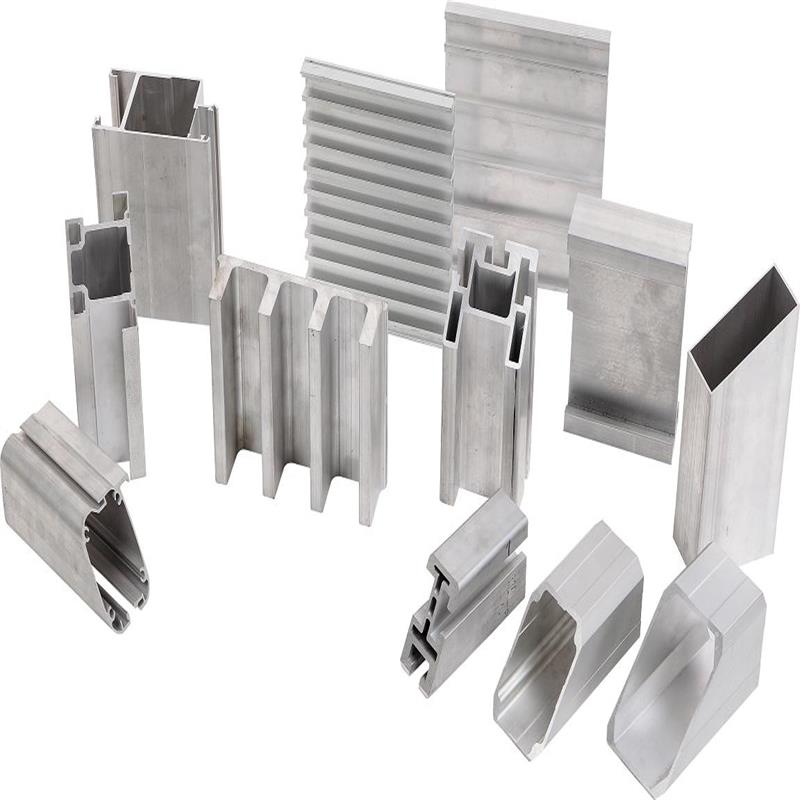What Are the Benefits of Aluminium Profile?
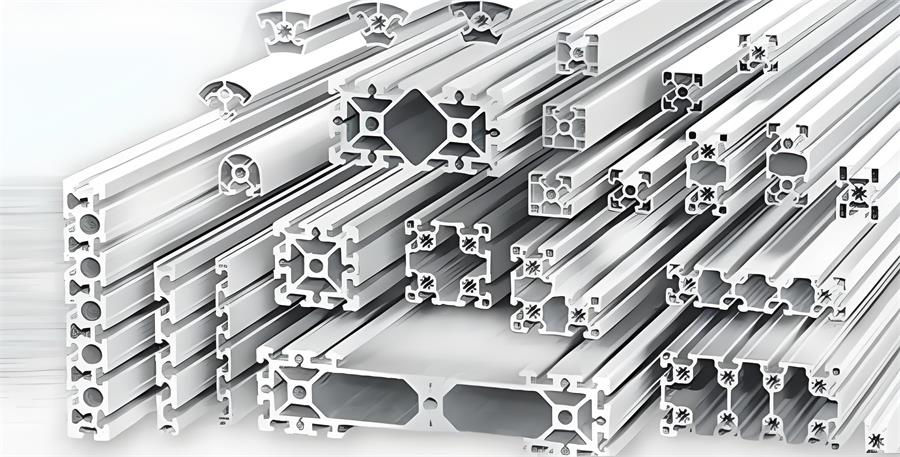
What Are the Benefits of Aluminium Profile?
Aluminium is a widely used material in today’s manufacturing, construction, and design industries. Its versatility, strength, and lightweight properties make it a top choice for various applications. From building frames and vehicle parts to modern furniture and home decoration, aluminium profiles are indispensable in the modern world.
However, what makes aluminium profiles such a popular option? What specific benefits do they provide that other materials cannot? In this article, we’ll explore the advantages of aluminium profiles, covering aspects like sustainability, cost-effectiveness, and practical applications. We'll also highlight the contributions of Aluinno Aluminum, a leader in the industry, to showcase how aluminium profiles are changing industries globally. By the end of this article, you'll have a deep understanding of why aluminium profiles are the material of choice for so many purposes today.
Meta Title:
The Benefits of Aluminium Profile – Versatility and Strength Explained
Meta Description:
Discover why aluminium profiles are so widely used. From sustainability to durability, find out how companies like Aluinno Aluminum are leading the way.
Table of Contents
1 |
Introduction |
2 |
What Is Aluminium Profile? |
3 |
Durability and Strength |
4 |
Lightweight Advantage |
5 |
Corrosion Resistance |
6 |
Design Flexibility |
7 |
Sustainability and Recyclability |
8 |
Thermal Efficiency |
9 |
Cost-Effectiveness |
10 |
Applications in Construction |
11 |
Uses in the Automotive Industry |
12 |
Furniture and Interior Design |
13 |
Low Maintenance Requirements |
14 |
Role of Aluinno Aluminum in the Industry |
15 |
Advances in Aluminium Profile Technology |
16 |
Aluminium Profiles vs. Other Materials |
17 |
Emerging Markets for Aluminium Profiles |
18 |
The Role of Aluminium Profiles in Renewable Energy |
19 |
Conclusion |
20 |
FAQs |
Introduction
Aluminium profiles are now a staple in modern architecture, manufacturing, transportation, and even interior design. From the automotive industry to renewable energy solutions, aluminium profiles offer a combination of strength, flexibility, and sustainability that few other materials can match. But what makes them stand out? And why are companies like Aluinno Aluminum at the forefront of this growing industry?
In this comprehensive guide, we’ll explore the numerous benefits of aluminium profiles. We’ll break down how these profiles provide durability without adding weight, resist corrosion, and can be tailored to nearly any design need. Additionally, we’ll discuss the environmental benefits of using aluminium and how its recyclability is crucial in the move towards more sustainable industries.
Whether you’re a business leader, a DIY enthusiast, or just someone curious about this versatile material, this article will give you an in-depth look at why aluminium profiles are the future of many industries.
What Is Aluminium Profile?
Aluminium profiles are extruded shapes made from aluminium alloys. Through a process called extrusion, aluminium is heated and forced through a die, which shapes it into a desired profile, such as a bar, frame, or pipe. These profiles are available in various shapes and sizes and are often used in construction, manufacturing, transportation, and interior design.
Aluminium profiles can be customized to specific needs, making them ideal for highly detailed or precise designs. They can range from simple linear shapes to complex, curved structures depending on the application.
Aluminium profiles are essential for several industries, and companies like Aluinno Aluminum are perfecting the production process, delivering customized profiles to meet the specific needs of their clients across the globe.
Durability and Strength
One of the key benefits of aluminium profiles is their exceptional strength-to-weight ratio. Despite being lightweight, aluminium profiles are remarkably strong, making them ideal for structural applications. While steel might offer similar strength, it is significantly heavier, which can limit its usefulness in applications where weight is a critical factor.
Aluminium's durability doesn’t just refer to its strength in holding up under pressure; it also includes its resilience in various environments. Whether in outdoor applications or high-stress environments, aluminium profiles maintain their integrity without significant wear or degradation over time.
Example: Aluinno Aluminum’s High-Strength Applications
Aluinno Aluminum has been a pioneer in providing high-strength aluminium profiles for industries like aerospace, construction, and automotive. Their expertise lies in creating profiles that offer maximum strength while keeping weight to a minimum. Aluinno’s innovations ensure that aluminium profiles can withstand extreme conditions, such as those faced by high-speed vehicles or large-scale construction projects.
Lightweight Advantage
When it comes to materials, weight matters, especially in industries like construction, automotive, and aerospace. Aluminium profiles provide the advantage of being lightweight, which reduces transportation and installation costs. Compared to materials like steel, aluminium can deliver similar strength with far less weight.
Consider how using lighter materials affects everything from fuel efficiency in vehicles to the structural load on buildings. For example, when a car’s body is made from lightweight aluminium profiles, the reduced weight improves fuel efficiency, which in turn helps the environment and cuts costs for consumers.
In construction, using lighter materials like aluminium reduces the overall load on a building’s foundation, leading to easier installation and lower transportation costs.
Aluinno’s Lightweight Solutions
Aluinno Aluminum specializes in producing aluminium profiles that balance lightweight characteristics with strength. Their profiles are widely used in transportation, helping improve fuel efficiency and ease of assembly without compromising safety.
Corrosion Resistance
One of aluminium's most impressive features is its corrosion resistance. Unlike steel, which rusts when exposed to moisture, aluminium naturally forms a protective layer of oxide when it comes in contact with air. This thin layer shields the material underneath from further corrosion, even in harsh environments such as marine settings or industrial sites.
For applications in construction, marine environments, or outdoor settings, aluminium profiles are ideal because they maintain their appearance and strength even after years of exposure to the elements. This low-maintenance property makes aluminium a preferred choice for windows, doors, and facades that must withstand weather conditions without constant care.
Aluinno’s Anti-Corrosion Technologies
Aluinno Aluminum offers a range of anodized aluminium profiles that provide enhanced resistance to corrosion. Their anodizing process creates an even more robust protective layer, making their profiles ideal for use in coastal regions or industries that require resistance to saltwater exposure.
Design Flexibility
Aluminium is highly malleable, meaning it can be shaped and customized to meet various design requirements. Whether you need simple, linear shapes or more complex curves and angles, aluminium profiles can be produced to exact specifications.
This flexibility makes aluminium profiles a favorite in architectural design. Designers love the ability to create sleek, modern, and sometimes intricate designs without compromising on strength or durability. Aluminium profiles are used in everything from decorative structures to supportive frameworks.
In the world of furniture design, aluminium profiles are popular due to their clean, modern aesthetic and adaptability to different styles. They can easily be incorporated into both contemporary and traditional designs, providing an attractive balance of form and function.
Custom Design Capabilities at Aluinno Aluminum
At Aluinno Aluminum, the focus on design flexibility is a top priority. Aluinno offers customized profiles tailored to the specific needs of clients across various industries. Whether a company needs a specific architectural profile or a specialized automotive component, Aluinno Aluminum ensures that their aluminium profiles meet exact design specifications.
Sustainability and Recyclability
Aluminium is often referred to as a green metal because of its environmental sustainability. One of its most significant benefits is that aluminium can be recycled indefinitely without losing its material properties. Recycling aluminium requires only about 5% of the energy needed to produce new aluminium from raw materials, making it an eco-friendly option for industries seeking to reduce their carbon footprint.
In a world that is increasingly focused on sustainability, industries that use aluminium profiles are already ahead in the effort to reduce waste and lower energy consumption. Using recycled aluminium doesn’t compromise the quality or strength of the profiles, making it a smart choice for businesses committed to eco-friendly practices.
Aluinno Aluminum’s Commitment to Sustainability
At Aluinno Aluminum, sustainability is embedded in their business model. They not only produce high-quality aluminium profiles but also focus on utilizing recycled aluminium to create eco-friendly products. By integrating recycling into their production process, Aluinno reduces waste and energy usage, contributing to a greener, more sustainable industry.
Thermal Efficiency
Aluminium profiles offer excellent thermal efficiency, making them an important material for energy-efficient designs. In the context of building construction, aluminium profiles are often used in window and door frames to improve insulation and minimize heat transfer. These profiles, when equipped with thermal breaks, significantly reduce the loss of heat from buildings, contributing to lower energy consumption.
Thermal breaks are insulating materials placed within aluminium profiles to block the transfer of heat or cold from the outside to the inside. This innovation helps in maintaining consistent indoor temperatures without over-reliance on heating or cooling systems, which in turn reduces overall energy costs.
Energy Efficiency in Aluinno Products
Aluinno Aluminum recognizes the importance of thermal efficiency in today’s buildings. Their aluminium profiles are designed with energy efficiency in mind, offering enhanced insulation for windows, doors, and facades. By using advanced technologies, Aluinno ensures that their profiles help reduce energy waste, making them ideal for green building projects.
Cost-Effectiveness
Another notable benefit of aluminium profiles is their cost-effectiveness over the long term. While the initial cost of aluminium might be higher than some other materials like plastic or wood, the overall savings in terms of maintenance, durability, and energy efficiency make aluminium a smart investment.
Aluminium profiles require less maintenance than other materials, such as wood, which needs regular treatment to prevent decay, or steel, which requires protection from rust. Aluminium’s natural resistance to corrosion, combined with its durability, means that the profiles last longer and do not need frequent replacement or repair.
In construction and transportation, the lightweight nature of aluminium profiles also reduces transportation costs and labor requirements, further adding to their cost-effectiveness.
Applications in Construction
In the construction industry, aluminium profiles have transformed how buildings are designed and built. From windows and door frames to curtain walls and roofs, aluminium is a go-to material for architects and engineers. Its lightweight nature makes it easier to handle during construction, reducing installation time and costs.
Aluminium profiles are also preferred in high-rise buildings due to their strength and resistance to harsh weather conditions. The ability of aluminium to resist corrosion, along with its thermal efficiency, makes it ideal for modern building designs where sustainability and durability are key considerations.
Uses in the Automotive Industry
In the automotive sector, aluminium profiles play a crucial role in improving the fuel efficiency and performance of vehicles. By reducing the overall weight of a car, aluminium profiles contribute to lower fuel consumption and increased vehicle speed. In electric vehicles, lightweight aluminium components help improve battery efficiency and extend driving range.
Aluminium profiles are also used in crash management systems because of their ability to absorb impact during collisions. This property makes them vital for enhancing passenger safety while keeping the vehicle’s weight to a minimum.
Furniture and Interior Design
Aluminium profiles have found a significant place in furniture design and interior architecture. Their sleek, minimalist appearance makes them ideal for modern furniture, partitions, shelving units, and other interior elements. Aluminium profiles are used to create custom furniture, allowing for design flexibility that can fit both contemporary and traditional styles.
Because aluminium is so easy to shape and finish, it can be used in a wide variety of applications without losing its aesthetic appeal or structural integrity.
Low Maintenance Requirements
One of the greatest advantages of aluminium profiles is their low maintenance needs. Unlike steel, which can rust, or wood, which can decay, aluminium requires very little upkeep. Its natural resistance to corrosion and wear makes it a low-maintenance material that performs well in various environments.
For instance, aluminium window frames do not need to be painted or treated regularly, and they are not prone to warping like wood. This makes aluminium profiles ideal for long-term outdoor use in residential, commercial, and industrial settings.
Role of Aluinno Aluminum in the Industry
As a leading producer of aluminium profiles, Aluinno Aluminum has been instrumental in advancing the applications of aluminium across various industries. With a strong focus on innovation, sustainability, and quality, Aluinno Aluminum continues to develop solutions that cater to the evolving needs of industries worldwide.
Their commitment to sustainable practices and their use of recycled materials have positioned Aluinno as a leader in producing eco-friendly aluminium profiles. The company’s ability to deliver customized profiles for demanding industries like aerospace, construction, and automotive has cemented its reputation as a reliable provider of high-quality aluminium products.
Advances in Aluminium Profile Technology
Over the years, there have been significant advances in aluminium profile technology, leading to lighter, stronger, and more durable products. Companies like Aluinno Aluminum have invested heavily in research and development to push the boundaries of what aluminium can do.
Technological improvements in extrusion processes, surface treatments, and alloy compositions have made aluminium profiles even more versatile. These advancements have opened up new possibilities for the use of aluminium in high-tech industries such as aerospace, medical devices, and renewable energy.
Aluminium Profiles vs. Other Materials
When comparing aluminium profiles to other materials like steel, wood, or plastic, it’s clear that aluminium has several key advantages. Steel may be stronger, but its weight makes it less suitable for applications where mobility and efficiency are essential. Wood can provide a natural aesthetic, but it’s prone to rot, decay, and warping, making it less durable in harsh environments.
While plastic is lightweight and inexpensive, it lacks the strength, durability, and thermal efficiency that aluminium offers. In industries where performance and longevity are critical, aluminium profiles provide the ideal combination of strength, weight, and resilience.
Emerging Markets for Aluminium Profiles
The demand for aluminium profiles is growing in several emerging markets, particularly in renewable energy, electric vehicles, and smart technology. In the renewable energy sector, aluminium profiles are used in solar panel frames, wind turbine components, and energy-efficient buildings. Their lightweight and durable nature make them ideal for installations that require longevity and resistance to environmental factors.
In the automotive industry, the increasing production of electric vehicles (EVs) is driving demand for lightweight aluminium profiles, which help improve energy efficiency and reduce vehicle weight. Aluminium is also becoming a popular material in smart home technologies, where its flexibility allows for innovative designs and applications.
The Role of Aluminium Profiles in Renewable Energy
As the world moves toward renewable energy sources, aluminium profiles have become a vital component in the solar energy industry. Aluminium frames are commonly used for solar panels due to their lightweight nature, durability, and resistance to weather conditions.
In addition to solar energy, aluminium profiles are also used in the construction of wind turbines. The lightweight yet strong nature of aluminium ensures that turbine blades and other components can withstand high winds without adding excessive weight to the structure.
The sustainability of aluminium as a material aligns perfectly with the goals of the renewable energy industry, making it a top choice for manufacturers and installers looking to reduce their carbon footprint.
Conclusion
Aluminium profiles offer a remarkable combination of strength, durability, flexibility, and sustainability, making them one of the most versatile materials in the modern world. From construction to automotive, interior design to renewable energy, aluminium profiles are shaping the future of multiple industries.
Companies like Aluinno Aluminum are at the forefront of this transformation, providing high-quality, customizable aluminium profiles that meet the unique needs of their clients. With a commitment to innovation, sustainability, and precision, Aluinno Aluminum is helping industries adopt aluminium as their material of choice for a wide range of applications.
FAQs
1. Why are aluminium profiles used in construction?
Aluminium profiles are used in construction because they offer a lightweight, durable, and corrosion-resistant option that’s ideal for building structures, windows, and facades.
2. How are aluminium profiles made?
Aluminium profiles are made through the extrusion process, where heated aluminium is forced through a die to create various shapes based on specific design requirements.
3. What makes aluminium eco-friendly?
Aluminium is 100% recyclable, and recycling aluminium requires significantly less energy than producing new aluminium, making it an environmentally friendly material.
4. Can aluminium profiles be used in harsh weather conditions?
Yes, aluminium profiles are highly resistant to corrosion and can withstand harsh weather conditions, making them ideal for outdoor and marine applications.
5. How does aluminium improve energy efficiency?
Aluminium profiles help improve energy efficiency by providing excellent thermal insulation, reducing heat transfer in buildings, and contributing to lower energy consumption.


 En
En



 Location:
Location:
